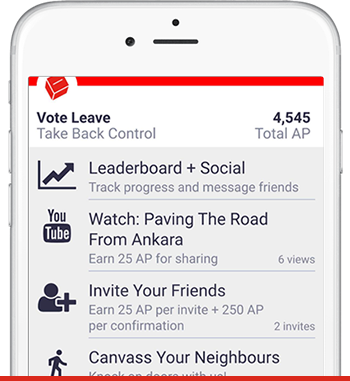A spokesman for Vote Leave said:
'The Secretary to the BPC’s Management Committee described the CBI poll as "dodgy". Now the BPC has formally refused to consider the core problems with this dodgy poll because of its limited remit, though the BPC has accepted there were flaws with it. This will further undermine confidence both in the CBI's dodgy polls and the polling industry in general. The new leadership of the CBI has shown an error of judgement in claiming that a poll described by the BPC as "dodgy" has been "endorsed" by the BPC - the BPC has done no such thing. The CBI seems unable to say anything on this subject without making untrue comments.
'The CBI was wrong about the gold standard, appeasement, the ERM, and the euro. It is funded by the EU, keeps its membership number secret, and routinely makes dishonest claims about business opinion on the EU. Most businesses want Britain to take back the power to make our own trade agreements and have an independent voice on the WTO. We will continue to explain across the country that the CBI is a dishonest organisation that does an abysmal job of representing British business. The CBI will never be taken seriously on this subject until they agree to survey their members in an honest and transparent way.'
ENDS
Notes to editors:
1. The BPC upholds Vote Leave’s complaint that the CBI survey breached the BPC’s rules
The BPC has refused to give the survey a clean bill of health. The BPC concludes that YouGov ‘had not posted on its website a description of the sampling methods that had been deployed on its website and that it should now do so’. The BPC finds that YouGov’s description on its website of the sampling procedures it used did not cover this survey.
2. The BPC does not consider it within its remit to rule on surveys it considers ‘dodgy’
The BPC stated that ‘we must advise that the BPC does not rule on the adequacy of the methodologies employed by its members’ and that much of Vote Leave’s complaint ‘simply fall[s] outside the BPC’s remit’. This is despite the fact that one of the purposes for which the BPC was established is to ’encourage the highest professional standards in public opinion polling.’ It must be asked what the purpose of a polling regulator is, if it is not to rule on surveys that are manifestly flawed.
Fortunately we already know what the BPC thinks. The Secretary to the BPC’s Management Committee, Nick Moon, has said the survey is ‘pretty dodgy but luckily we don’t need to rule on that.’ The BPC’s attitude undermines its claim that it ensures that ‘the highest standards are maintained at all times’ and will not inspire public confidence in the polling industry.
3. We still don’t know who was sampled as part of the CBI’s ‘dodgy’ survey
The BPC takes the view that there is no requirement on pollsters to disclose ‘the total number of persons who were invited to complete a particular poll’, although it acknowledges that this information is made available ‘exceptionally’. As a result, we still have no idea who was actually surveyed. All we know is that the CBI supplied YouGov with a list of members to poll of an unspecified size. The CBI cannot continue to use this survey to claim it reveals the views of the 190,000 businesses it claims to ‘represent’ if the vast majority of those companies never had the opportunity to respond to the survey.
4. It appears that the only firms who were surveyed had attended CBI ‘consultation events’
The BPC refused to address most of Vote Leave’s points. Most tellingly, it refused to discuss Vote Leave’s suggestion that the 415 companies surveyed were handpicked by the CBI after they had attended ‘consultation events’ with the CBI at which the pro-EU stance of the CBI leadership was no doubt spelled out. A reasonable person will now draw the inference that this is precisely what happened and that the sample was biased.
5. Some basics.
a) The CBI refuses to disclose how many members it has. When it was forced to disclose this number in 1999 during the controversy over their dodgy polls on the euro, it was only 2,037. Why won't they publish this number? b) The CBI's leaked minutes showed that they did not want to pressure the Government to ask for any serious changes to the UK-EU relationship. c) Analysis of CBI lobbying shows that they did not criticise a single new EU law or court judgement over the past year. d) The CBI claims to speak for 'British business' but routinely distorts the debate.
